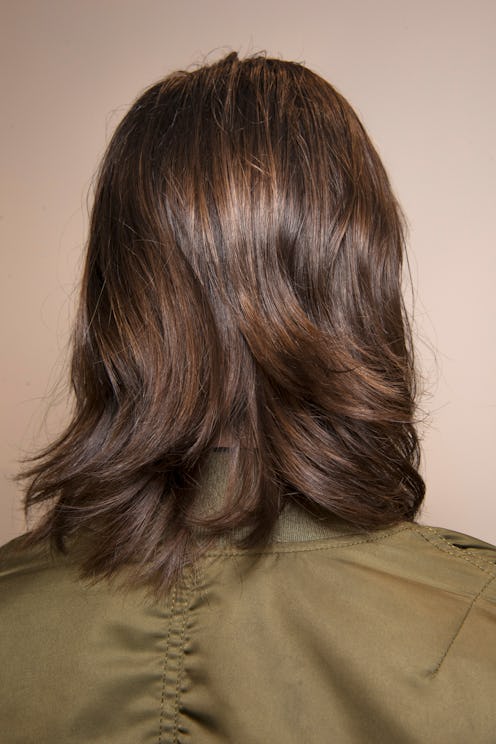In 2018, the world is rich with options in every category from food to shopping, and even with dating and dogs (yep, there's a Tinder for pups, too). The same thing rings true for contraceptive methods. Though the pill and condoms remain the two most popular birth control methods, women who don't want to procreate (yet, or at all) are increasingly looking toward more low-maintenance solutions. The IUD, or intrauterine device, is ideal for preventing pregnancy without having to remember to take a pill on the daily. Though it's known to be highly effective and convenient, your IUD could be causing hair loss.
Read more: How Microneedling For Hair Loss Leads To A Head Full Of Healthy Hair
But even before looking at the side effects, it's important to understand the different forms of an IUD, and the most popular choices: Paragard and Mirena.
According to Planned Parenthood, the ParaGard IUD doesn’t have hormones. Instead, "It’s wrapped in a tiny bit of copper, and it protects you from pregnancy for up to 12 years,” the company's site says. While the Mirena “uses the hormone progestin to prevent pregnancy. Progestin is very similar to the hormone progesterone that our bodies make naturally. Mirena works for up to seven years.”
Dr. Eden Fromberg, Founder and Director of Holistic Gynecology New York, adds that hormone-containing IUDs cause hair loss (rather than copper devices) because the hormones disrupt the body’s natural balance… meaning that the confused hormones can cause your body to go haywire. Synthetic hormones, or progestins, also play a part in the loss, too, Dr. Fromberg says. (In short, progestins are hormones that regulate the menstrual cycle. Synthetic progestins cause depression and anxiety, according to American Family Physician. In turn, that could causes hair shedding and baldness.
"We now know that hormones and birth control pills are additionally associated with depression and the development of autoimmune disease, so the hormones contained in IUDs deserve rigorous study," Dr. Fromberg confirms. "Earlier in my career, it was believed that hormone-containing IUDs put out very low levels of hormones that would only have local activity inside of the uterus."
When a change in hormones happen — and when emotions go into overdrive — it triggers shedding called telogen effluvium, Penny James, a trichologist at Salon IAT in New York City, tells TZR. Luckily, telogen effluvium differs from alopecia areata, according to Medical News Today, because your hair actually grows back. "Once your hormone level is regulated, the shedding will stop,” James says.
So, yes, IUD-related hair loss is reversible... as long as you work to undo the damage and be sure not to make yourself even more susceptible to hair loss. “Remember healthy scalp, healthy hair,” James says. “Make sure you have protein in your diet, and be careful with bleaching, coloring, hot curling irons, flat irons, chemical straightening, and reducing your stress levels.”
Keep in mind that women who use IUDs aren't the only ones susceptible to hair loss. "It's also result from steroid medications like Prednisone, which are also hormones," Dr. Fromberg notes. "Thyroid medication at incorrect doses can be associated with hair loss, too. What many people don’t realize is that enzymes convert hormones between different forms, and that binding molecules act as 'coaches' on the 'hormonal ball teams,' so to speak, making hormones more or less available. Starting or going off hormonal contraception can trigger hair loss in these respects."
Though the factors of hair loss are predetermined, patients should still discuss options with their respective doctors. But in the meantime, there are still several topical treatments and products that can help aide regrowth. See them ahead.
